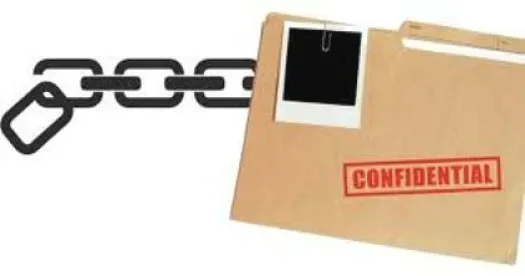The President has now signed into law the Defend Trade Secrets Act of 2016 ("the Act"), which was passed by Congress with overwhelming bipartisan support. Effective upon the President’s signature, and applicable to any misappropriation of trade secrets on or after the date of signing, the Act creates a new federal civil remedy for trade secret misappropriation. It adds another important tool for the protection of intellectual property rights, which are often the most important assets of a business.
The Defend Trade Secrets Act is an amendment to Chapter 90 of Title 18 of the United States Code, also known as the Economic Espionage Act of 1996. The Act provides a federal civil remedy complementary to the remedies already provided by state law, i.e., the Act does not pre-empt the state laws, but adds a federal remedy if the Act’s jurisdictional threshold is met as set out in the opening paragraph of the Act:
§ 1836. Civil Proceedings
(b)(1) An owner of a trade secret that is misappropriated may bring a civil action under this subsection if the trade secret is related to a product or service used in, or intended for use in, interstate or foreign commerce. (emphases added).
In view of the realities of commerce in the 21st century, the threshold does not appear difficult to meet, with the result of federal court jurisdiction being available for a large number of trade secrets causes of action. While trade secrets were, and remain, protected under various state laws, concerns had long been expressed that there was no sufficiently uniform body of law governing trade secret actions. This is because trade secret law and its application could vary considerably depending on jurisdiction.1Congress addressed these concerns in the Act, with an express goal of providing uniformity and certainty for the protection of trade secrets.2
A highly significant, and somewhat controversial, provision of the Act is the availability of pre-judgment, ex parte civil seizure. The provision permits a court – upon a proper, verified evidentiary showing “in extraordinary circumstances” – to “issue an order providing for the seizure of property necessary to prevent the propagation or dissemination of the trade secret that is the subject of the action.” 18 U.S.C. § 1836(b)(2)(A)(i). Recognizing that such a seizure represents extraordinary relief, Congress tailored the statute in an attempt to balance the needs of the trade secret holder against the legitimate rights of the party accused of misappropriation of the trade secret, as well as third parties that may be affected by a seizure. A full discussion of the seizure provisions are beyond the scope of this article, but highlights of the provision include limiting the scope of any seizure order to the “narrowest seizure of property necessary to achieve the purpose,” imposing restrictions “to protect the person against whom [a seizure] order … is directed from publicity,” bringing the seized items into the custody of the court, requiring a prompt hearing, and allowing the use of a special master to facilitate the return of any seized property unrelated to the allegedly misappropriated trade secret. 18 U.S.C. § 1836(b)(2)(B), (C)&(D). The party seeking seizure will be required to post security and the party subject to seizure has a cause of action for damages resulting from “a wrongful or excessive seizure or wrongful or excessive attempted seizure under this paragraph.” 18 U.S.C. § 1836(b)(2)(G). The seizure provision may prove to be a powerful tool with significant impact, as its scope could include anything needed to prevent improper dissemination of a trade secret, from seizing a single memory stick containing a misappropriated trade secret, to seizing a warehouse of goods that embody a misappropriated trade secret, and beyond.
The Defend Trade Secrets Act also provides traditional remedies, including injunctive relief and money damages. The statute provides broad discretion to the court to issue an injunction “to prevent any actual or threatened misappropriation,” so long as the injunction does not “prevent a person from entering into an employment relationship,” or place limits on employment based “merely on the information a person knows,” rather than on evidence of threatened misappropriation, or conflict with applicable state law prohibiting restraints on employment. 18 U.S.C. § 1836(b)(3)(A)(i).3
An interesting and counter-intuitive caveat is that under “exceptional circumstances that render an injunction inequitable,” a court can essentially grant a compulsory license to the party that misappropriated a trade secret that allows “future use of a trade secret upon payment of a reasonable royalty for no longer than the period of time for which such use could have been prohibited.” 18 U.S.C. § 1836(b)(3)(A)(iii). In addition to injunctive relief, the statute provides for damages in the form of actual loss caused by the misappropriation, damages for unjust enrichment not addressed by the trade secret owner’s actual loss, or “in lieu of damages measured by other methods, the damages caused by the misappropriation measured by imposition of liability for a reasonable royalty…” 18 U.S.C. § 1836(b)(3)(B). In the event a trade secret is “willfully and maliciously” misappropriated, the court can award exemplary damages in an amount not more than twice the damages awarded. 18 U.S.C. § 1836(b)(3)(C). Finally, the statute has a provision for the award of attorney’s fees to the prevailing party in the case of a bad faith claim of trade secret misappropriation, bad faith in bringing or opposing a motion to terminate an injunction, or if the trade secret is “willfully and maliciously” misappropriated. 18 U.S.C. § 1836(b)(3)(D).
As with many new laws, it will be some time before the full extent of the practical effects of the law can be identified. However, several immediate effects from this new law are expected.
One potential benefit of the Act may be that trade secret litigation can be simplified and therefore less costly. Previously, if diversity jurisdiction was lacking, a plaintiff in a trade secret case was forced to tack on on some other federal cause of action if it preferred to be in federal court. Oftentimes, a claim under the Computer Fraud and Abuse Act (18 U.S.C. § 1030) was brought alongside the state trade secret claim as the hook for federal jurisdiction. With trade secret misappropriation a federal question under the Act, a plaintiff may now choose to simplify its case and forgo a requisite secondary claim that would previously have been asserted primarily to provide federal jurisdiction.
Another practical effect of the Defend Trade Secrets Act is that now there are clear alternative forums that must be considered before bringing a trade secrets claim. The Act is similar to the existing state law causes of action, but its specific language varies in some ways from the various state versions of the Uniform Trade Secrets Act. Such differences may or may not be important depending upon the case, but it is now important for a potential trade secret plaintiff to undertake a careful comparison of the state laws available to ascertain whether a federal or state law cause of action may be more favorable to the facts of their case. For example, the definition of “trade secret” of the Texas4and Illinois5versions of the Uniform Trade Secrets Act varies from the Defend Trade Secrets Act definition in that Texas and Illinois expressly specify that “financial data” or a “list of actual or potential customers or suppliers” may constitute protectable trade secrets. The Idaho version of the Uniform Trade Secrets Act (unlike the Defend Trade Secrets Act and most states’ law) expressly includes and defines “computer program” within its definition of a trade secret.6These and other such nuances may be important depending upon the specific circumstances of the case being contemplated.
Yet another potentially important practical effect of the Defend Trade Secrets Act is with respect to employee contracts. The Defend Trade Secrets Act requires that employees be notified in any contract pertaining to confidential information or trade secrets that, despite the contract, employees have the right to turn over such information to the government when illegal conduct is suspected. If the employee or former employee does indeed turn over information under such circumstances, then the individual is immune from civil and criminal liability under both federal and state law. Non-compliance with the notice requirement could preclude the recovery of attorney’s fees or exemplary damages for the employer.
Thus, while the Act has been received favorably by businesses, there are some practical effects and potential pitfalls to be considered going forward with respect to both invoking the new cause of action and complying with its terms in employment contracts.
1.The Act draws upon the Uniform Trade Secrets Act ("UTSA"), versions of which were passed in a large majority of the States; and therefore much of the substance of the Act will be familiar to practitioners in the trade secrets area. In fact, only New York and Massachusetts lack some version of the UTSA.
2. The fact that state law is not preempted (i.e., the U.S. district courts have original, but not exclusive, jurisdiction under the Act), combined with the substantive overlap between the states’ versions of the UTSA, and Congress’ modelling the Act on the UTSA, and the apparent ease of meeting the "interstate commerce" jurisdictional requirement of the Act, one can envision removal fights in matters where a plaintiff files a UTSA claim in state court, pleading the state statute, and the defendant removes the case to federal court, claiming that the lawsuit is in fact a claim under the Defend Trade Secrets Act, a federal question. That discussion is beyond the scope of this article.
3. Some commentators have stated that this provision of the Act sounds the death knell for the "inevitable disclosure" doctrine. We caution against such a view, especially before the courts have begun applying the Act. The prohibition against placing conditions on employment “merely on the information a person knows” still allows an opportunity to introduce evidence to prove a threatened misappropriation and obtain relief under the Act, including appropriate conditions on employment.
4. Texas Civil Practice and Remedies Code Title 6 Chapter 134A.
5. 765 ILCS § 1065(2)(d) (2012).
6. Idaho Code §§ 48-801 to 807.






 />i
/>i
